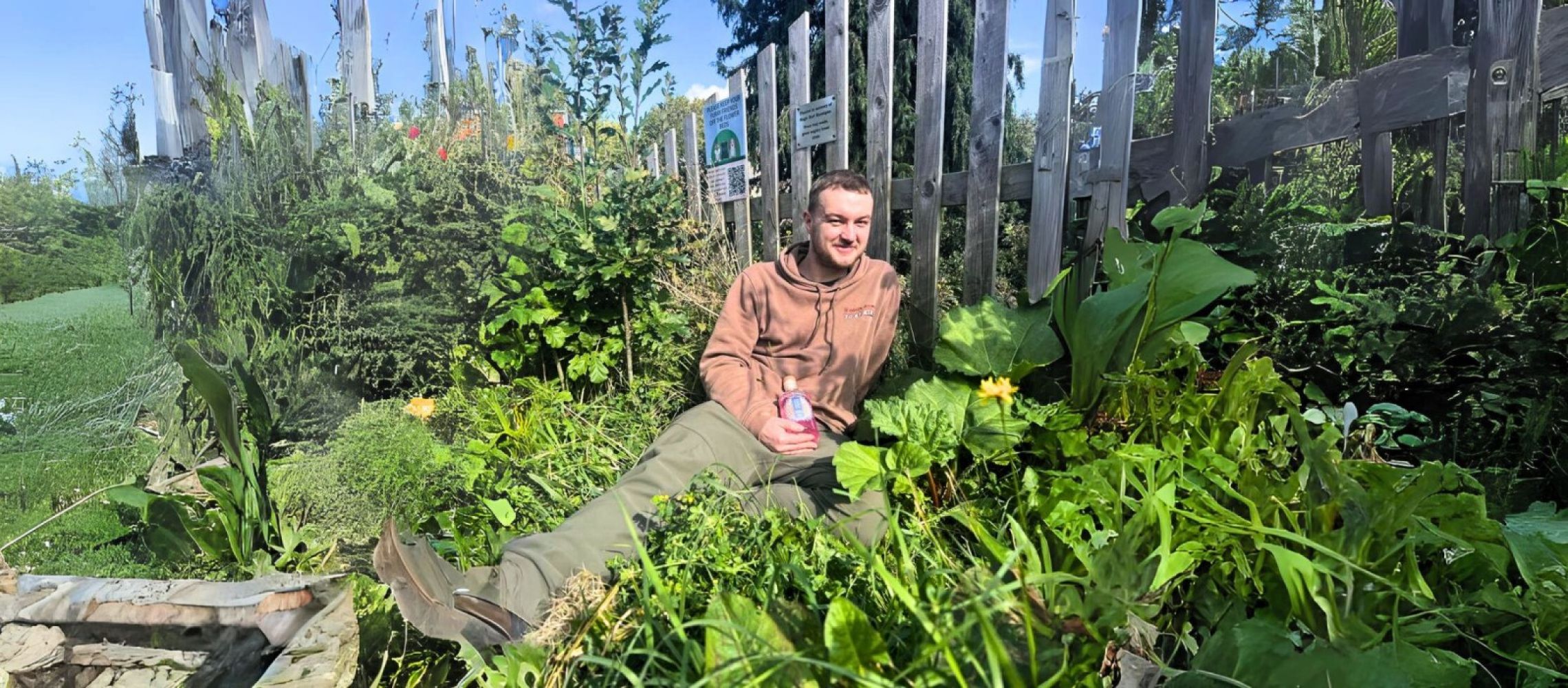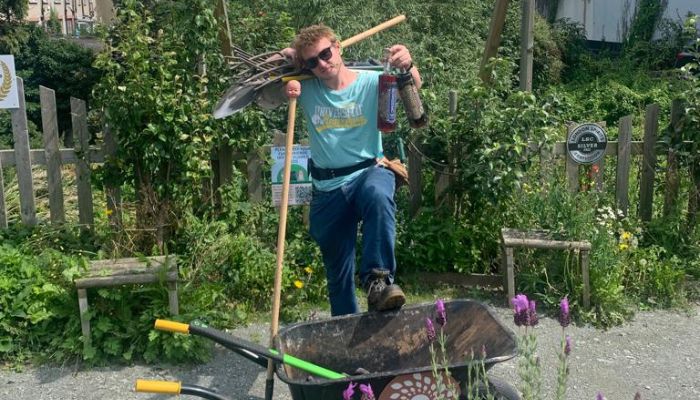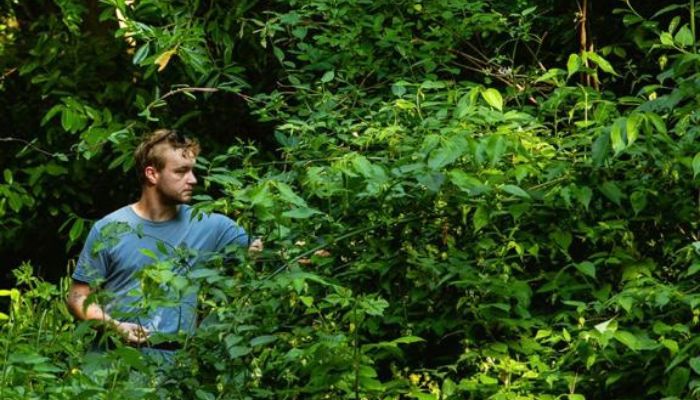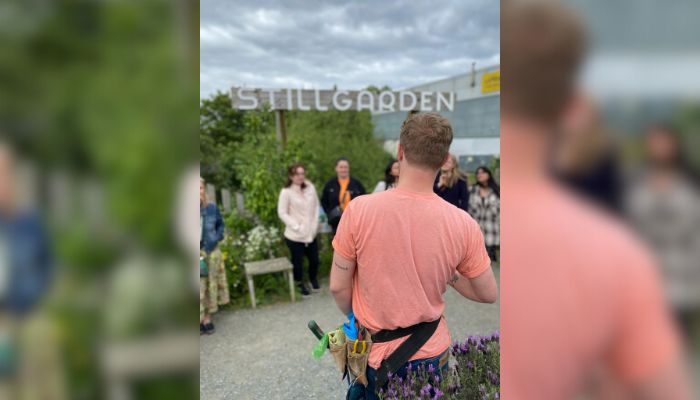Submission Deadline
28 February 2026
Judging
Date
24 & 25 March 2026
Winners Announcement
22 April 2026
28 February 2026
24 & 25 March 2026
22 April 2026

Meet Connor Howlett, the environmentally conscious advocate behind Stillgarden Distillery's creative approach. Explore his journey from volunteer gardener to brand ambassador, where his love of flora and community service blends effortlessly with the world of spirits. In our exclusive conversation below, you'll learn how he cultivates brand visibility, nurtures innovation, and navigates market challenges.
I started with Stillgarden as a volunteer in the community garden, planting botanicals from seed in my apartment and dropping them down to plant when they'd outgrown their pots. Then just as I was a couple of weeks from submitting my final college assignments, a role opened up for a gardener. I fit comfortably into that role, and as the distillery began to open up to the public (this was the height of COVID funtime), I got trained on giving tours of the distillery garden, and a little bit of bartending. It soon became clear that bartenders were contacting me to get involved with the brand, whether that was finding out more about the products, foraging, or wanting to help out with some of our community projects. The advocacy element of my role was a natural progression too. I graduated with a major in Film and a minor in English Literature in Dublin, and my first job was very young as a butcher back in a medieval village. It's just your typical pathway into the spirits industry. I have a non-traditional albeit traditional knowledge of plants as I grew up as a bit of a forest child in Roald Dahl's countryside back in Buckinghamshire, England. When I first moved to Dublin, I felt a little lost without owls hooting around me at night, red kites screeching overhead in the day, and plants in every direction, so I sought it out.

Image: Connor Howlett
Gardening, foraging & harvesting, community work: I look after and manage the community garden, ensuring that the botanicals we grow are looked after and organic. I managed this with the help of our volunteer community, the Social Botanists who started as a small group of bartenders during the beginning of the pandemic, and then expanded to anyone who wanted to get involved. We'll grow what we can, sustainably forage what we can, and then approach local producers and look farther when we need to. I also work with local community groups for community plantings, wildlife walks, and clean-ups.
BA: represent the brand for bartenders as the friendly face of Stillgarden. I'll advocate for the brand at public events, but also out in trade, whether that's through panel discussions, sampling, training, foraging walks, or organizing activations.
Business Development: help with ideas for new products, such as Glas and Buí, and expand the reach of the brand into venues. I'll spend about 3/4 of my time out in trade, offering support to venues who already work with us, and also introduce the brand into new venues."
As we're one of Dublin's local distilleries that's fairly well-connected thanks to the tram and bus system, it's nice that we can bring trade into the distillery to see the setup for themselves, show them the garden, take them out foraging, see how we do things. For us, the story and liquid very much speak for themselves. This applies to consumers too with our extensive experiences on offer at the distillery, such as the Academy where attendees leave with the spirit that they've made themselves. As we have several unique products in our portfolio too, we can be used alongside more established brands as modifiers with the amari and Glas and Buí, and also offer a unique tasting experience that doesn't just end with whiskey and gin. We can provide something different for consumers.
Time! There's never enough to get to see all the people we want to see, and there are only so many (one) places (s) you can be at any given time...

Image: Connor Howlett
We have three core pillars at Stillgarden: Science, Community, and Nature. These three all tie into everything we do, using scientific creativity to create our portfolio, relying on community engagement as a small, local, Irish business, and nature as the larder of the production team. Sustainability is incorporated into each pillar too, and the stuff is delicious, so we don't usually have much reluctance after pitching our story.
With foraging, it's always on foraging responsibly. Never ransack a place, be safe, and be smart. Don't nibble on something you don't know anything about, the usual good practice for forest folk. Our portfolio tells a nice chronological story in itself: starting with gin and vodka, with our rotovap being a core instrument in the creation of both. Social Gin is a dry base finished with a distillate made of mint and lavender from the community garden (planted by bartenders). Then we get into the amari range, which all start off the same way, but are sweetened with Irish flavors to suit the Irish market, with O'Maro using raspberry (and Tonka), Berrissimo using blackberry and rhubarb root, and Café O'Maro using coffee four-ways from our local sustainable roaster Cloud Picker. Glas and Buí combines our flair for creativity with giving bartenders a tool of their own. I like to approach the amari and the two liqueurs as opportunities for the trade to find their idiosyncratic use for them. By telling the story of the distillery through our products, bartenders can then add their chapter or spin on what they've just learned about us as producers. It becomes all the more collaborative that way.
[[relatedPurchasesItems-63]]
Having a consistent presence in trade is key, whether that's attending events from other brands, supporting bartenders at competitions, or having our own to increase engagement.
The cost of living is a huge challenge for producers and consumers alike. Inflation on ingredients, utilities, and staffing costs puts a lot of pressure on small businesses in particular, which can make it difficult to compete with and speak louder than brands that have seemingly unlimited marketing budgets and can sell under cost. It makes being a unique player in the market all the more key - which is certainly one of the main reasons we've been able to keep expanding.
Bringing bartenders down to the distillery, taking them out foraging, giving portfolio tastings, and then offering the lab space to develop their ideas. I'm lucky enough to work with a team of experts with a long history in the trade. Jake Chaney, our Venue (Locations) Manager, and creative mastermind behind Glas and Buí, and Richie Delahoyde, who works with me in sales, and assists on production and events in the venue, both have a long history in bars, with competitions and have a wealth of knowledge to offer to anyone looking for guidance. When we bring trade to the distillery, they have the space to ask questions and the tools to test their ideas.

Image: Connor Howlett
The Flavour Thesaurus by Niki Segnit - is a little more focused on food than drinks, but this is the first book that made me think about the creative exploration of flavors. The recent sequel, if you can call it that, has even more of a focus on herbs and floral ingredients, and is all the more pertinent.
A Quick Cuppa Herbal by Fiann Ó'Nualláin - is actually about tea, but this book made me think about different uses for herbs and flavors, and what I could find growing around me to forage. Also, a worthy read to consider some of the impacts certain ingredients have on the body, and what should be used in moderation, which not all of us always think about regarding drinks and food.
As an arts grad, I'm a firm believer in literature, film, and stories having the ability to take us outside of our own experience and better understand other people. This is the most valuable asset for a person to work in hospitality, in my opinion. If we can't work with people, why are we working with people?
Show your spirits where it matters. Get your products tasted by top bartenders, buyers and experts at the London Competitions — enter now.